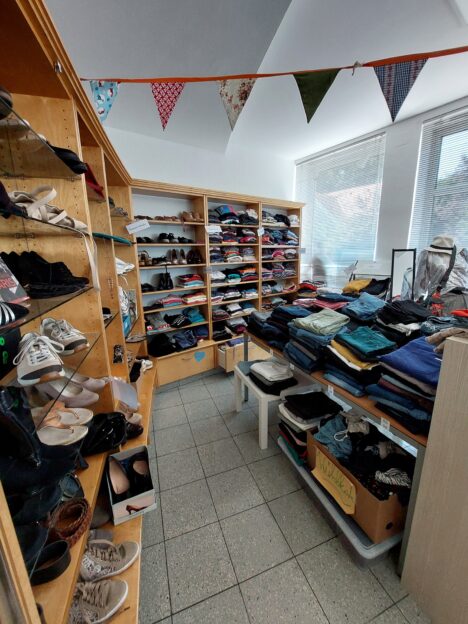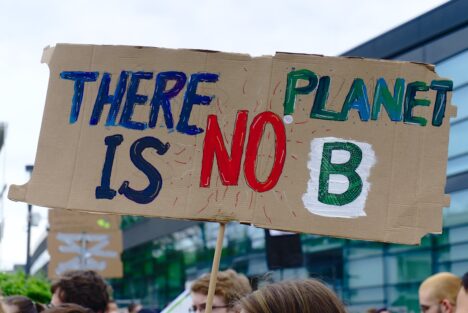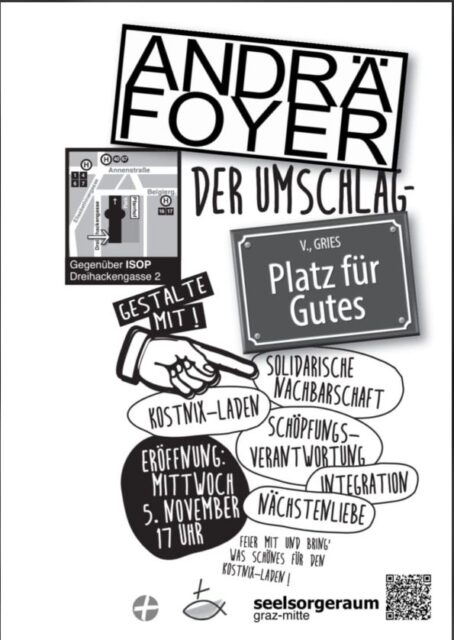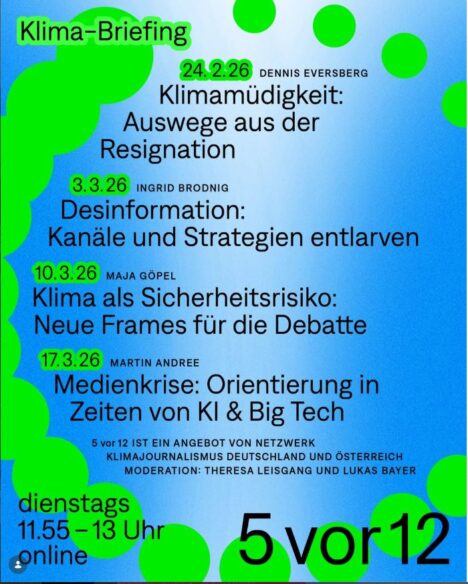Original post made by lau in German on May 14, 2023 (Petition – Tempo senken, Leben retten). Translated by Lisa Scheer in 2023/24.
Disclaimer: Some of the links in this post might redirect you to a site in German. Feel free to use Machine Translation (such as DeepL or Google Translate) to get the information provided on these sites.
Lowering driving speeds on our roads can be done cheaply. It works instantly and can create up to 10% savings in CO2-emissions in the traffic sector. These are some of the reasons for the petition „Tempo senken, Leben retten“ („Lower speeds, save lives“).
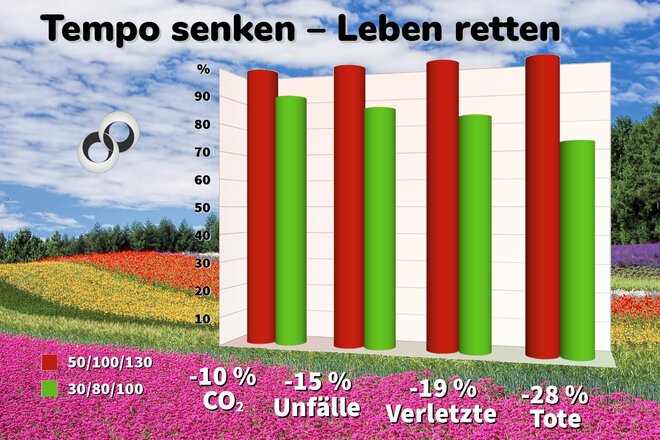
Here’s a link for the petition: https://www.openpetition.eu/at/petition/online/tempo-senken-leben-retten
Apart from saving money, we can prevent a lot of suffering. Each 6th accident, each 5th injury to a person and each 4th death due to cars could be prevented.
Leading experts have shown this and also presented other positive effects that are good for us all (www.tempolimit-jetzt.at à in German).
We (www.verkehrswende.at/tempo-senken/#wir) support this initiative and ask you to join us to
- lower the speed limits in towns to 30 km/h,
- lower the maximum speed on motorways to 100 km/h and other roads in the countryside to 80 km/h
- ensure that people adhere to maximum speeds limits through the right observational methods.
Explanation
Slowing down instead of hurrying up: more important than ever before
Lower speed limits in our streets is the most effective way to lower emissions of greenhouse gases when it comes to our transport sector.
Lower speeds will do more for us than that though. They will lead to:
- safer, more child-friendly living and traffic areas,
- a calm and attratctive living and housing environment,
- a cleaner environment and
- a longer, healthier life.
At the moment, the Austrian traffic sector counteracts other measures against CO2-emissions. Ever since 1990, there has been an increase in CO2-emissions of 57%.
The majority of the population is already ready for doing their part when it comes to climate protection. These people expect politicians to actually call for effective measures.
Saving money and energy:
By reducing speeds like recommended above, the fuel consumption and greenhouse gas emissions would by lowered by 10%. This saving of energy and reduction in CO2-emmissions require bindingly coordinated speeds for all road users while ensuring the ease and fluidity of traffic.
The savings potential when it comes to high speed is particularly outstanding. A practical test conducted by ÖAMTC showed lowering temperatures from 130 km/h to 100 km/h can lead to a lower consumption of fuel. This can range from of 20 to 29% depending on the vehicle type.
Protecting our health
Applied to all cars in Austria reducing speed from 130 km/h to 100 km/h means 23% less of CO2, 34% less fine dust particles due to tyre abrasions and 80% less of nitric oxide.
Excessive pollution causes 10% of all cancers in Europe, which translates to about 5,400 cancer cases and 2,600 cancer deaths per year in Austria. Areas with a lot of traffic even children show early signs of Alzheimer’s, Parkinson’s and other neurodegenerative disorders.
A reduction in speed lowers emissions of pollutants and aids in protecting lives and our health.
Relaxation
According to the WHO, traffic noise is the second largest environmental health risk after pollution. In many places in Austria, noise pollution is far above the limit values recommended by the WHO. Apart from hearing loss, traffic noise heightens the risk for heart attacks and other cardiovascular diseases as well as sleeping disorders, stress and tinnitus.
A reduction in speed also helps to contain noises along roads and streets. Especially a speed limit of 30 km/h in towns would show a significant relief.
Prevent accidents – save lives
In Austria, around 400 people die each year in around 35,000 accidents. Around 45,000 people are injured. Future speed limits of 30/80/100 km/h mean around 15% (5,000) fewer accidents, 19% (8,600) fewer people injured and 28% (120) less deaths per year.
Overall societal benefit
As scientists, the Federal Environment Agency and other organisations have pointed out, a uniform and binding speed reduction on Austria’s roads is of eminent importance in order to
- finally put Austria on the proper climate course
- make our cities, residential areas and regions more attractive
- protect the live and health of people.
Politicians are called upon to reduce the speed on Austria’s roads in order to protect the lives and health of the population and to preserve the basis of life for future generations.
Texts with diagrams, sources and references (in German): www.verkehrswende.at/tempo-senken/
Thank you for your support, Verkehrswende.at from St. Pölten (Verkehrswende.at is a cross-initiative platform for the implementation of a transport turnaround in Austria.)
A „transport turnaround“ (dt. Transportwende, die) is the totality of measures that change our mobility behaviour and the transport of goods in such a way that there is no further transport-related depletion of natural resources.
Verein Verkehrswende.at
3100 St. Pölten, Saarstraße 1
ZVR-Zahl: 1946764203
Webseite: www.verkehrswende.at/
© Verkehrswende.at








